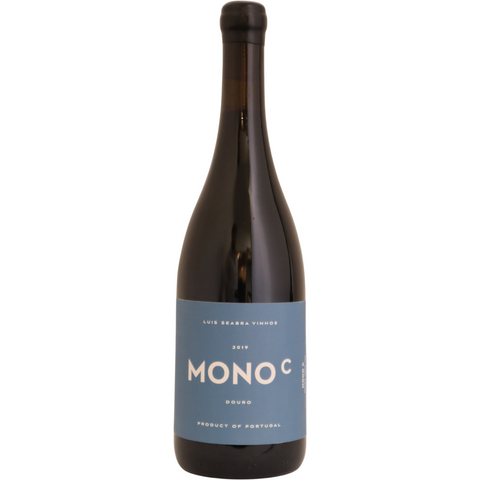
2021 Luis Seabra "Mono C" Tinto, Douro, Portugal
Bright violet. Snappy aromas of red and blue fruit, overlaid with a distinct schist mineral note. On the palate, bright and punchy with floral and mineral tones. Mouthwatering acidity and soft tannin provide lovely balance. Drink with a slight chill.
ABOUT THIS WINE
‘Mono C’ is a unique exploration of one of Southern Portugal’s most commonly planted red varieties, Castelāo. It is rarely planted in Douro, although authorized. With a softer tannin profile than many of the Douro’s native red grapes, this is a wine that’s more open and less tight than the local wines—and under Seabra’s watchful eye, less soft and alcoholic than the varietal typically is shown.
ABOUT THIS PRODUCER
A star of the "new Portugal," Seabra is known for his intense and age-worthy still wines. His minimal-intervention approach yields wines that are terroir-driven testaments to ancient plots on the steep banks of the Douro River.
After a decade as the winemaker at Niepoort, where he was responsible for some of the best known and highly rated wines to come out of Douro and Porto, Luis Seabra decided that he no longer wanted to make wines following someone else’s tastes and specifications. Thus, he began his eponymous winery, and set about shattering preconceptions of what Douro wines represent.
Seabra is a particularly gifted winemaker, one who sees wine as a medium through which a piece of land can speak. The wines are stark expressions of the soil...and are extraordinary, especially the Cru Series. "Cru" translates as "raw" in Portuguese, and with these wines in particular, the transmission of terroir is unadulterated and singular.
Most of the vineyards are located between the southern part of the Douro Superior in eastern Douro near the Spanish border and the Cima Corgo at the heart of the Douro. The Cima Corgo is a subregion that experiences an extreme diurnal shift—in fact, it has some of the greatest day-night temperature swings in Portugal. The vines are very old, with some exceeding 100 years in age. The soil is primarily schist (xisto). Fermentation is spontaneous with native yeast.
